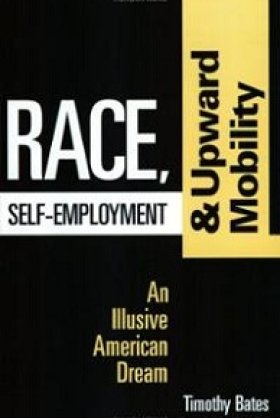Race, Self-Employment, and Upward Mobility: An Illusive American Dream


Race, Self-Employment, and Upward Mobility refutes conventional notions about entrepreneurship with a wealth of unimpeachable data. Timothy Bates finds that self-employment and upward mobility are open to those who are highly educated and skilled, often possessing significant personal financial resources. This is true among Asian Americans, African Americans, and everybody else, too. Asian immigrants are prominent in low-profit, high-risk small-scale inner-city retailing, Bates explains, because they are often pushed into it by poor English language skills and problems of credentialing—when they can secure other employment, they do so. African Americans, in contrast, who have the education, capital, and inclination to become entrepreneurs find better-paying opportunities and avoid ghetto shopkeeping.
Bates compares black and Asian self-employment. He reviews who becomes self-employed, what factors encourage continuing self-employment, and how people escape unsuccessful self-employment. He addresses the place of entrepreneurship in upward mobility among disadvantaged persons and the role of the government in assisting them. Bates’s analysis is based largely on the massive Characteristics of Business Owners survey compiled by the U.S. Census Bureau, which provides nationwide information on small business success and survival patterns.
Timothy Bates, professor of Labor and Urban Affairs at Wayne State University, is the author of five previous books on minority business and economic development. He was a fellow at the Woodrow Wilson International Center for Scholars in 1993–1994.











